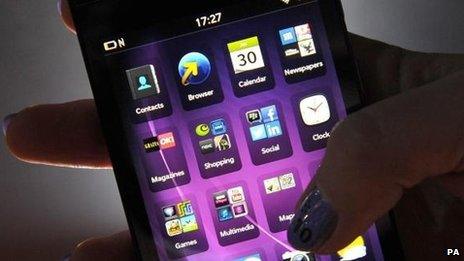Will BT’s move mean cheaper mobile phone calls for all?
- Published
- comments

Gavin Patterson, the chief executive of BT, is eyeing two big market developments in mobile over the next two years which he wants his business to lead.
Cheaper mobile delivery via BT's 5 million wifi hotspots and "quad play" - where a provider offers customers television, broadband, landline and mobile all in one package.
BT could offer these in partnership with a mobile operator - as it does at present with EE.
Or, as is now becoming clear, buy a mobile company outright and deliver the service direct. That could allow it to make more from its investment in high-speed fibre optic broadband and offer better prices to customers.
The fact that BT is now also a major player in content, spending £1.6bn buying up sports rights to Premier League and Champions League football for example, makes such a move even more attractive.
There is an iron logic to Mr Patterson's plans, and BT's share price is up today as investors react to the possibility of BT using its strong balance sheet to offer more services.
Consumers (businesses and individuals) prefer one point of contact for all their digital needs and Virgin and Talk Talk, for example, make much of their "quad play" offer.
In the longer term, cheaper services for consumers could be the result as BT pushes mobile via its own wifi when in a building and its hotspot network when "out and about". More than 80% of mobile calls are made at home or in the workplace.
That's a concern for mobile operators with expensive mast-based networks to service. Which is probably why O2 and EE are interested in opening preliminary talks with the telecoms giant.